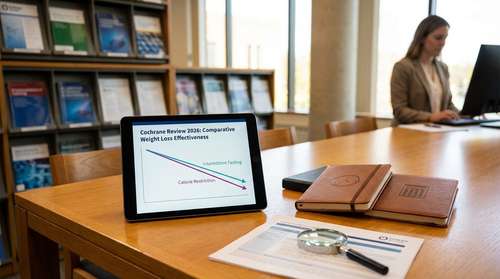Often in our busy lives, grabbing a quick meal means reaching for something that is ultra-processed. We might not always think of how our food choices affect our long-term health, but every bite can lead us down a path of increased health risks. Ultra-Processed Foods are around almost every corner, and when discussing Diabetes and Diet, it’s crucial to understand the connection. As you read on, you might find yourself wondering, could those quick meals be nudging you towards a higher risk of chronic disease?
Between late-night snacks and fast food on the go, our dietary habits are evolving rapidly. Research has shown that the American diet includes a significant portion of ultra-processed items, and these foods have been linked to creeping issues like insulin resistance and elevated blood sugar. The conversation around nutrition, healthy eating habits, and diabetes prevention is more relevant than ever. This article dives into three key points about Ultra-Processed Foods and Diabetes, and how you can make better food choices to safeguard your health.
Understanding Ultra-Processed Foods
Let's dive into what Ultra-Processed Foods really are and why they matter when discussing Health and Nutrition. These are products that have undergone multiple processes before they reach us, often containing additives, preservatives, and unhealthy fats that can harm your metabolism in the long run.
Ultra-Processed Foods go beyond simple processed ingredients. They are, in essence, food items that have been stripped of their natural form and then added back with various chemicals. This kind of processing not only reduces the natural fiber and nutrient content but also usually escalates the Glycemic Index of these foods. Ever wonder why that bag of chips or soda doesn't quite fill you up the way a nutritious meal does? That’s because the ingredients are designed to optimize flavor and shelf life rather than nutritional value.
Over time, excessive intake of these foods can lead to hunger spikes and crashes, impacting Blood Sugar levels. As your body contends with rapid shifts in insulin, it’s no surprise that extended consumption increases the risk of developing Diabetes and other metabolic conditions. Bearing this in mind, the narrative around processed foods is not just about weight gain, but about understanding how deeply these habits affect Diabetes Management and overall Health.
Linking Ultra-Processed Foods with Diabetes Risk
Now that we understand what Ultra-Processed Foods are, how exactly do they contribute to an increased risk of Diabetes? Numerous studies show that people with diets high in highly processed items show significantly higher rates of insulin resistance. This is a major red flag in the battle against chronic disease, particularly type 2 Diabetes.
When you eat excessive ultra-processed items, your overall Diet quickly shifts away from nutrient-dense, whole foods to items that offer little nutritional support. This not only spikes your Blood Sugar but over time may lead to reduced insulin sensitivity. Metabolism is tricked into overcompensating, paving the way for chronic health issues related to Diabetes.
The research community continues to push the point that it's not just about calories, but the quality of your Food Intake. By sticking mainly to foods that are heavily processed, you might be compromising your body’s ability to maintain a stable Blood Sugar level. In many ways, the prevalence of Ultra-Processed Foods in the American food landscape mirrors our lifestyle—fast, convenient, and a bit too risky when it comes to long-term health. Have you ever paused to think about what is really going on with your body after a regular diet of fast food and ready-to-eat meals?
Additionally, dietary habits associated with Ultra-Processed Foods can lead to inflammation and metabolic stress. The link between these foods and Diabetes is a stark reminder of how what we eat impacts our overall lifestyle. Food choices steeped in convenience might seem harmless today but can accumulate into significant health risks over the years.
Practical Tips for Diabetes Prevention and Healthy Eating
This section is all about actionable steps. After understanding the impact of Ultra-Processed Foods on Diabetes, how can you modify your Daily Food Intake to support healthier Living? It might seem overwhelming, but small tweaks in your diet can make a big difference when it comes to lowering the risk of Diabetes.
One practical step is to incorporate more natural, unprocessed foods into your everyday meals. Think fresh fruits, vegetables, and lean proteins rather than packaged items loaded with additives. By focusing on whole foods, you not only get better nutrition but also maintain a steady Glycemic Index. These dietary shifts support better insulin resistance management and offer a robust defense against chronic diseases.
Consider planning your meals ahead of time. This can mean preparing a big salad for lunch or making a homemade granola instead of reaching for a packaged version. Every time you opt for a fresh, whole ingredient over something processed, you're actively participating in Diabetes Prevention and taking steps toward better metabolism.
Sometimes, it helps to think of each meal as a building block for your overall Health. Picture your body as a finely tuned machine where every ingredient fuels its daily operations. By avoiding harmful additives and focusing on nutritious options, you not only mitigate Blood Sugar spikes but also nurture a more resilient and healthy metabolism over time.
Not everyone can change their diet overnight, but integrating healthier Food Choices gradually can yield substantial benefits. Consider it a journey towards improved Dietary Habits. Experiment with meal prepping on weekends or swapping out your processed snacks with fresh alternatives. You might find that these gradual changes offer lasting benefits, transforming your lifestyle from one that’s risk-prone to one that's incredibly mindful of Nutrition and Health.
As you continue making these better choices, you start noticing changes—more energy, steadier moods, and fewer cravings. Every intentional shift towards unprocessed food is a small but significant step in Diabetes Management and overall Well-Being.
In summary, understanding the nature of Ultra-Processed Foods, recognizing their link to Diabetes Risk, and making practical everyday swaps in your Diet are vital to maintaining long-term health. Our food choices matter; they shape our metabolism, influence our Blood Sugar levels, and ultimately determine our vulnerability to chronic diseases like Diabetes. The next time you pass by the aisle of packaged meals or bottle drinks, remember that each decision contributes to the intricate puzzle of your health. Stay informed, be deliberate, and let your plate be a canvas for healthy, nourishing fare!




